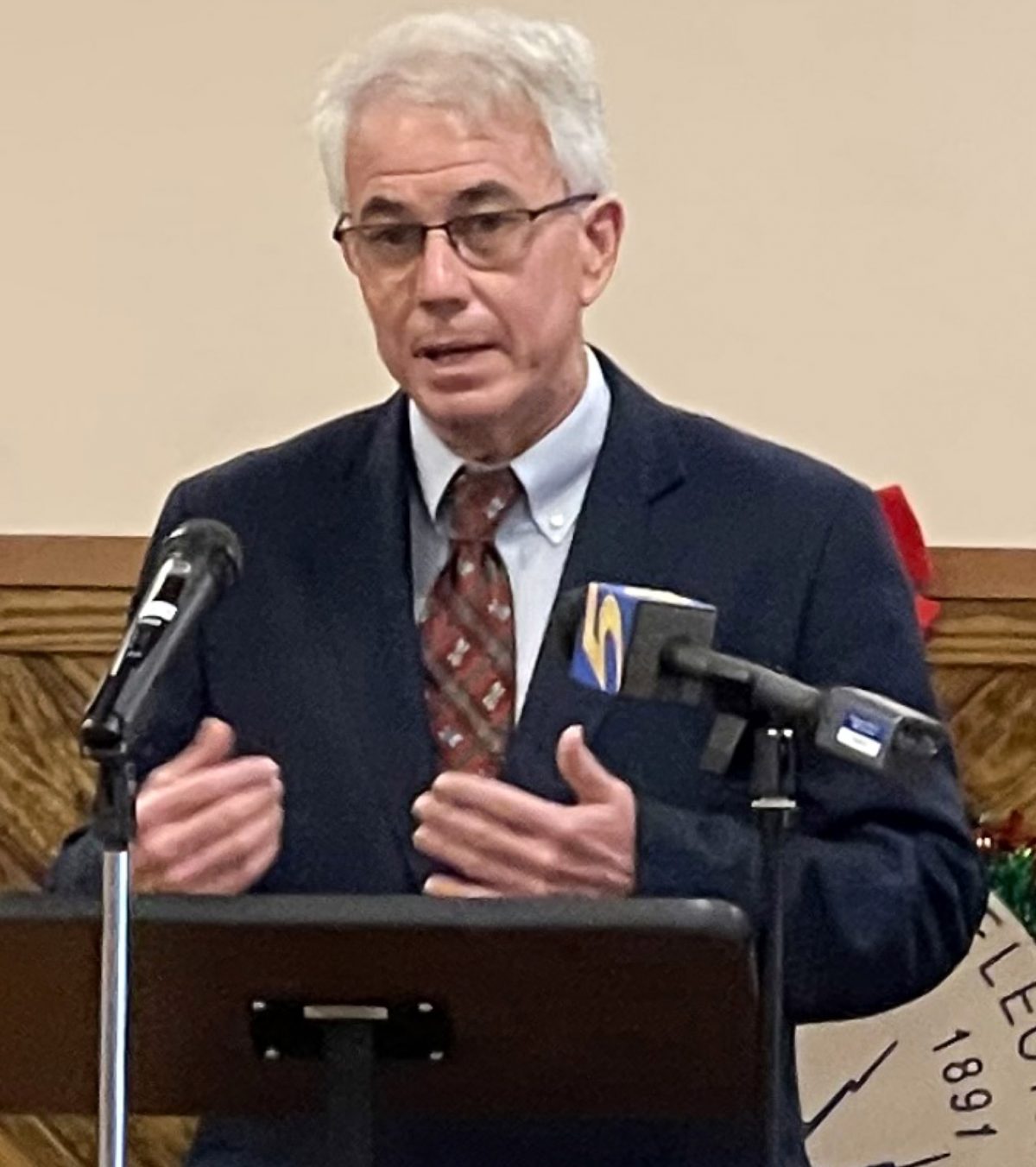Shelby County District Attorney Steve Mulroy, whose prompt reaction to events in the Tyre Nichols case won him plaudits nationally and internationally, got the chance last week to do some boasting of his own — before a jury of his peers.
The occasion was Thursday’s annual spring meeting of the American Bar Association’s Criminal Justice section at The Peabody, where Mulroy was the keynote speaker.
Referring to the recent actions of our state legislature, Mulroy said, “Admittedly, these are not boon times in the Volunteer State for the cause of civil rights and justice. But let me suggest that Memphis is the ideal place for your meeting, because it illustrates that even out of stark challenges, we can learn valuable lessons of reform. “
Recalling lawyer Ben Crump’s statement that “the way we handled this tragedy was ‘a blueprint for the nation,” Mulroy acknowledged, “I’m proud of that, and I’m proud of the way my staff thoroughly but quickly dealt with a potentially explosive fiasco.”
The DA elaborated on the lessons of the Nichols case, classifying his remarks under three headings: “We Can Pick Up The Pace; We Can Be More Transparent; [and] We Can Be More Strategic.”
Apropos the pace of things, Mulroy noted, “[W]e brought TBI [Tennessee Bureau Of Investigation] in immediately and we began our investigation. DOJ [Department of Justice] announced its investigation within 11 days. Memphis Police Department [MPD] fired the officers within two weeks. We allowed the family to view the footage within 16 days of the incident, 13 days of the death. We announced indictments within three weeks.”
All that, he said, constituted “an extraordinary pace for an extraordinary case.” Further: “Unnecessary delay would have fueled precisely that public distrust that was already at a low level. We did a speedy but thorough review of the facts and rendered a fair decision.”
As for the matter of transparency, Mulroy reviewed for his audience a thicket of customary practices and red tape obstacles that might have delayed his release of the MPD’s tell-tale video but declared, “Video should be released as soon as possible, without interfering in the ongoing investigation.”
And, while the potential restrictions he enumerated might theoretically have applied to his office, Mulroy said both he and MPD, which possessed the videos, resolved to expedite their release, “as soon as key witness interviews [were] completed,” and almost immediately upon the DA’s levying of second-degree murder charges against the five police officers involved in the beating death of Nichols.
“It worked,” Mulroy said. The videos would speak for themselves to a massive and horrified worldwide audience. “The nation braced for a violent reaction, not only in Memphis but around the country. And, while there were indeed vigorous (and understandable) protests here and in major cities across the nation, they were peaceful.”
For the success of the operation, Mulroy credited the recommendations of his newly created Justice Review Unit and an effective “partnership among local, state, and federal law enforcement, as well as the U.S. Attorney’s Office” and his own.
“The Tyre Nichols case,” Mulroy summed up, “rightfully sparked a nationwide conversation about police use of force and the need for police reform. Whatever one concludes about criminal liability regarding any individual defendant, I think it’s fair to conclude that suspect practices are not the work of one or two rogue outliers. Instead, there is a culture that needs to be changed.”
Among other potential reforms, Mulroy recommended “a provision in all budgets establishing a set amount for liability claims due to police misconduct. If that year’s awards exceed that amount, the difference gets deducted from the law enforcement budget. If it comes in under budget, it captures the surplus.”
He said, “If we really want to address what we all acknowledge to be a systemic problem, and further truly lasting change, half measures simply will not do.”
After all the gravity of his remarks, Mulroy being Mulroy, he concluded with one of his patented limericks:
“Thank you all for giving me the time/
As you ponder the justice of crime/
Once you’re all through/
Get some great barbecue/
You can mark it as billable time.”
